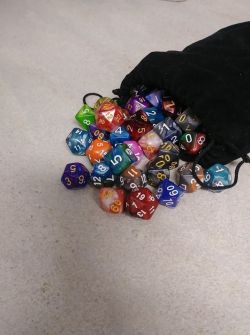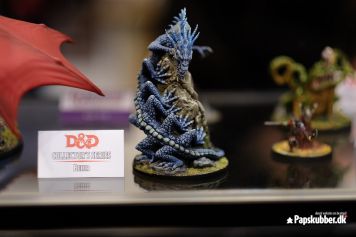A tabletop role-playing game consists of players creating a character to act as. They then use speech to play as that character through puzzles, conversations and often times an intricate story.
A majority of people who do not understand or play these games tend to ridicule and lean away from them. The popular role-playing game “Dungeons & Dragons”(DnD) was even criticized for a period of time as people believed it was used as a recruiting method for satanists or cults.
People have come a long way since then and though many still criticize the games, there are even more who encourage the play of these games as they have more benefits than most people notice.

The benefits
Tabletop games help build communication skills.
At a young age I talked to very few people. The only reason that changed was because a local librarian invited me to play “Pathfinder.”
“Pathfinder” is a fantasy role-playing game similar to DnD. The players use dice to decide most of their characteristics and then act as that character along with several other players who are led by a game master or GM.
The player characters or PCs have to communicate with one another to solve problems given to them by the GM. Knowing what your abilities are as well as the abilities of your party members is crucial to progressing forward.
There have been other people who probably would never have played if I had not reached out to them. These games build a sense of community and friendships that can last lifetimes.
Through playing Pathfinder I learned to talk to people more actively. I was also able to solve problems with other people who were also struggling to be more active communicators.
They also help build problem solving skills.

Picture this, your group is hired to guard a traveling merchant. Suddenly you are ambushed by bandits and have to protect yourselves as well as several other defenseless people.
How do you deal with the situation? Do you try to fight the bandits, do you try to bargain, do you run or do you have another idea that might work even better?
While this is not something most people deal with in real life it is a good way to build problem solving skills as well as teamwork. Knowing how to communicate with others under a stressful situation can be vital in a lot of jobs.
Players deal with these kinds of scenarios and many more every time they play. The GM creates a scenario that the players are able to solve, but they make it a challenge that isn’t always as simple as “hit the monster.”
They help with research and team building skills.
Creating a character alone is a research intensive process. What is your class? What is your race? What are some of your proficiencies?
A lot of questions go into making a character, all of which help determine their stats and abilities that can help in the future.
Another thing players have to keep in mind while creating a character is what kind of characters the rest of your party is creating. If everyone in your party is a healer then there is very little chance you will get too far. Player’s learn how to balance and fill important positions in this way.
Tabletop games are a great way to develop real life skills and have fun at the same time. I still play DnD and plan to continue for the foreseeable future.


